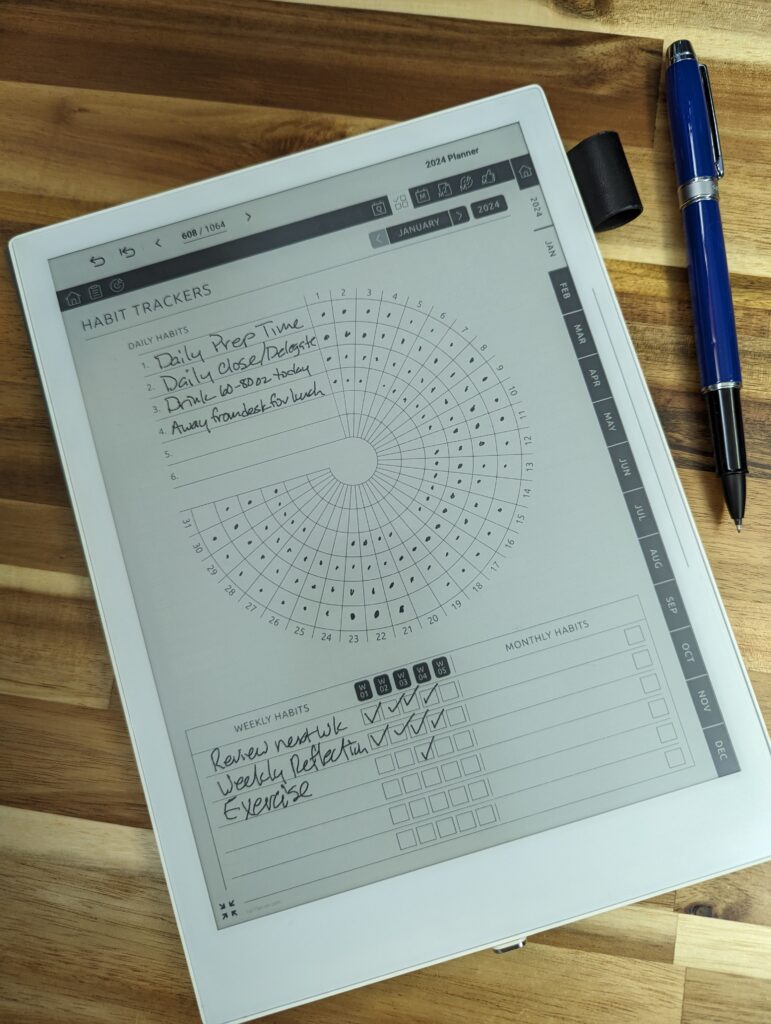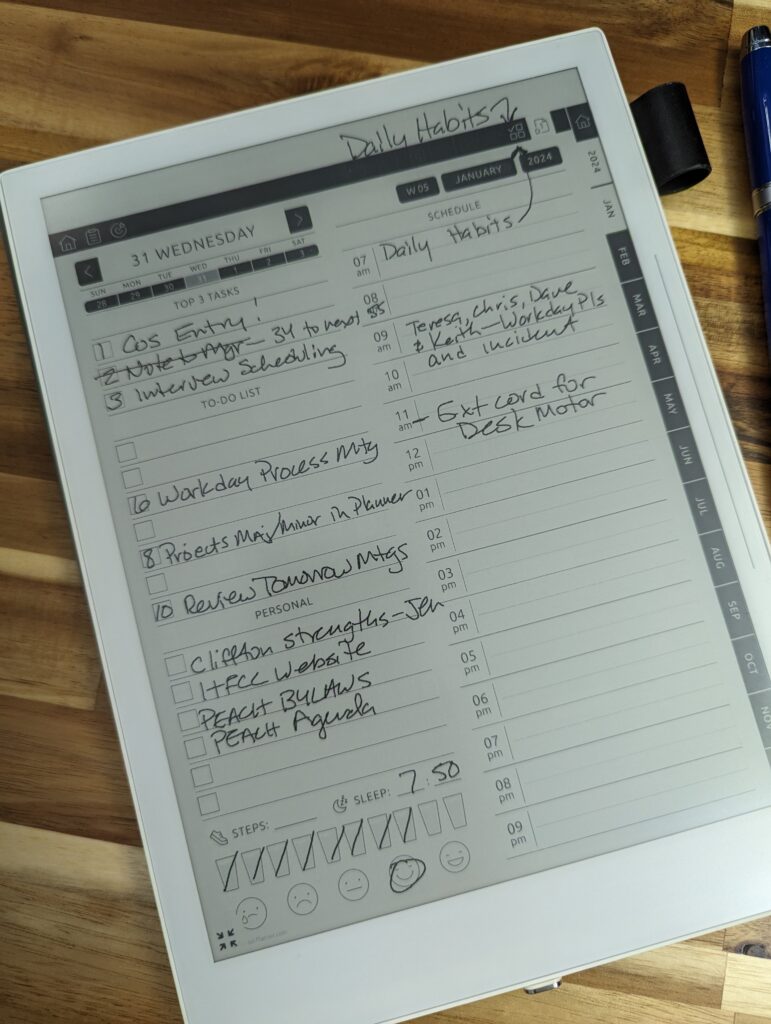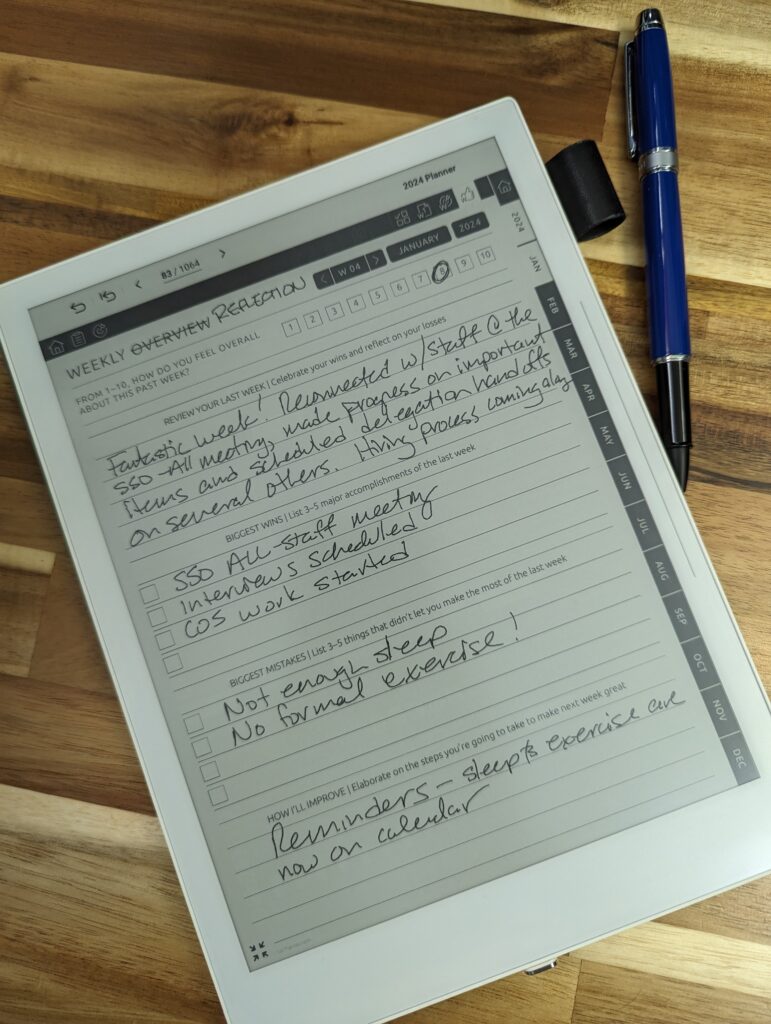Getting Back to “Normal”
Today’s Tuesday Reading is from Tracy Smith, Director of IT Service Support Operations at the University of Virginia. He is a MOR alum. Tracy may be reached at [email protected] or via LinkedIn.
Time Flies!
It is hard to believe that just about this time last year, I was on my first orientation call with MOR Associates. Time has flown by, and so much has changed! If you want to take a way back trip to this time, just read Brian McDonald’s Tuesday Reading from last week, and picture yourself as the new MOR participant he describes! One of my first readings in the MOR program was and is still very relevant: it included a section to dig in and learn how we identify, deal with, predict, and “see around the corner” of upcoming and inevitable change.
Today, I want to explore what happens when we “fall off the wagon” when life gives us a curveball that we could not have anticipated. MOR helps us build a tremendous toolset with our mindset and growing skillsets. We also explore the importance of having a healthy dose of resilience, but what happens to our most basic habits when events throw us off course or off balance in a significant way?
These “events” could be many different types [insert yours here] – ours was a massive external event from which we are still catching up seven months later. But others cause us to fall out of habit or out of balance. They can be external, where our habits and practices kick in even more substantially, or they can be very personal and knock us off our game – like the loss of a family member or a severe illness, for example. What happens when we finally return to work and realize we haven’t kept up with those habits amid the chaos?
In a conversation with my coach last year about this very question, she provided a phrase that was equally helpful and frustrating to me at the same time: “Get Back to Normal as quickly as you can.” As much as I tried, returning to normal was more challenging than anticipated. I wrote the words Get Back to Normal on my daily planner page every day for more than six months. I was often frustrated when I saw those words because “normal” was elusive and seemed impossible. So many tasks and priorities were bottled up, and the resulting demands came at me so quickly that “normal” seemed impossible even months later.
When in Survival Mode, Still Employ Your Toolset
Being in survival mode lasted until about mid-January. All along, I was still trying to use those new practices and habits – daily planning time, weekly reflection, thinking about presence, relationships, and active delegation, to name a few. Putting every task through the immediate/urgent vs. important filter was helpful. Still, there were so many “immediate” priorities that the important things seemed to join the growing queue of backlogged work.
During that survival mode time, I had to acknowledge that my time and capacity were significantly limited. I still tried to do some daily planning and weekly reflecting and to set some straightforward goals in the few precious moments carved out from the demands and chaos. Planning a little I-time was also crucial because taking time to breathe was part of the survival strategy! Discovering a new planner template with more intentional spaces for weekly, monthly, and quarterly goals and reflection was immensely helpful. Learning that weekly reflections do not need to be a chapter or a book was enlightening – only a few phrases would suffice!
But things were still not “normal,” and I was frustrated that I couldn’t just “be normal.” So, how in the world do you Get Back to Normal?
“Get Back to Normal” is Not a Light Switch
Fast forward to the time set aside for reflection at some point in January when an “aha” moment struck: “Get Back to Normal” is not a light switch that can be turned on to make everything, well, “normal.” Instead, while hastily reviewing my priorities each day and occasionally revisiting goals, I made significant, gradual progress – with many little wins.
“Get Back to Normal” is not a light switch.
“Get Back to Normal” is gradual progress.
“Get Back to Normal” is many little wins.
Reflection for the Win
Another ‘aha’ moment was this: As hard as it was to set aside reflection time, even a few moments of it had been beneficial. It was in this reflection time – a 5-minute sliver – that I was able to stop long enough to realize this about disruptive events: When a “curveball” event comes my way – whether it be a minor disruption in my weekly cadence or a major one, it will take a little while to Get Back to Normal but “Getting Back to Normal” takes time, focus, persistence, and lots of patience.
This needed space was illustrated a few weeks ago when the parent of one of my team members died unexpectedly. I opted to spend a couple of half-days on the road to be supportive by attending the funeral. That trip disrupted the week, including seemingly unproductive days while catching up and “Getting Back to Normal.”
The following week’s reflection time helped me to look back and see the pattern again – where even minor disruptions can ‘steal your normal.’ A plan is necessary for both multi-month and smaller events. Planning includes the determination and patience to return to normal in the face of the unexpected. I had to slow down and admit that something had distracted me from the usual routine, but it was up to me to persistently, patiently, and with some grit – Get Back to Normal.
Easily Distracted When Getting Back to Normal?
Besides using the practices of reflection, prioritization, and simple goal setting, I found several other tools helpful in the back-to-normal journey and included some pictures below. I am easily distracted. There, I said it. Using a new planning tool template to remind me of my practice progress (or lack thereof) was necessary. It helped me to see where I needed to focus to get back on track and celebrate the little wins. I needed those affirmations more than I admitted.
Also, using this new, more detailed template for my prioritization list and goals, I could see many more items marked with “IP” – my shorthand for “In Progress.” Priorities in progress are better than priorities not started. “In Progress” and moving forward means making progress – something I had not given myself credit for. Since beginning this practice, it has been mentally helpful to see an increasing number of items marked as “IP.”
Super-simple tool: Set an Alarm! Sometimes, a simple answer is best. I found myself setting alarms to remind me to eat and go to bed, among others. Setting these alarms came out of necessity because knowing myself, I will work work work at the goal and forget to take care of myself. I was a little embarrassed to share with my cohort that I had to set some alarms until I learned that others do, too! Alarms as reminders help nail down a practice into a consistent habit.
The final tool for today’s thoughts, and the most demanding tool for me personally during this time, was continuing to build on and build new relationships. Time constraints made this difficult, but the same benefits we learned about in the program apply. Building on existing relationships helped me see we were in this together. Building new relationships is a worthwhile investment. The feedback gained from newly formed relationships was helpful during crunch time and laid a foundation for the future.
What are your tools? How do you get back to normal again?”. What do you think?
(additional visual aids appear below the survey questions)

Which of these suggestions for getting back to normal could be most beneficial to you?
Last week, we focused on building a leadership community and asked from which leadership lessons you have learned the most:
- 44% said doing something not-so-well
- 24% said watching others do something well
- 17% said watching others do something not-so-well
- 15% said doing something well

We’ve learned almost 3x as much from times we’ve done something not-so-well vs. when we did something well. Interestingly, though, the pattern is reversed when we look at others: we are about 1.5x more likely to learn from what others did well compared to not-so-well. When focused on things we’ve done ourselves, we learn from experiences where we’ve pushed the boundary and tried something different, and when it went not-so-well, we learned from the gap between our desired and actual outcomes. However, when watching others, the power of role modeling is more substantial – seeing their successes can help propel our achievements.
Habit Tracker
Which one do I need to focus on and course-correct?

Top Three Daily Prioritization
A great tool – and links to my daily habits chart and weekly reflections (below)

Aha Moments
No need to write a book to reflect on the week. A few phrases will do!

- July 2025 (1)
- June 2025 (4)
- May 2025 (5)
- April 2025 (5)
- March 2025 (4)
- February 2025 (4)
- January 2025 (4)
- December 2024 (3)
- November 2024 (4)
- October 2024 (5)
- September 2024 (4)
- August 2024 (4)
- July 2024 (5)
- June 2024 (4)
- May 2024 (4)
- April 2024 (5)
- March 2024 (4)
- February 2024 (4)
- January 2024 (5)
- December 2023 (3)
- November 2023 (4)
- October 2023 (5)
- September 2023 (4)
- August 2023 (4)
- July 2023 (4)
- June 2023 (4)
- May 2023 (5)
- April 2023 (4)
- March 2023 (1)
- February 2023 (1)
- January 2023 (4)
- December 2022 (3)
- November 2022 (5)
- October 2022 (4)
- September 2022 (4)
- August 2022 (5)
- July 2022 (4)
- June 2022 (4)
- May 2022 (5)
- April 2022 (4)
- March 2022 (5)
- February 2022 (3)
- January 2022 (4)
- December 2021 (3)
- November 2021 (4)
- October 2021 (3)
- September 2021 (4)
- August 2021 (4)
- July 2021 (4)
- June 2021 (5)
- May 2021 (4)
- April 2021 (4)
- March 2021 (5)
- February 2021 (4)
- January 2021 (4)
- December 2020 (4)
- November 2020 (4)
- October 2020 (6)
- September 2020 (5)
- August 2020 (4)
- July 2020 (7)
- June 2020 (7)
- May 2020 (5)
- April 2020 (4)
- March 2020 (5)
- February 2020 (4)
- January 2020 (4)
- December 2019 (2)
- November 2019 (4)
- October 2019 (4)
- September 2019 (3)
- August 2019 (3)
- July 2019 (2)
- June 2019 (4)
- May 2019 (3)
- April 2019 (5)
- March 2019 (4)
- February 2019 (3)
- January 2019 (5)
- December 2018 (2)
- November 2018 (4)
- October 2018 (5)
- September 2018 (3)
- August 2018 (3)
- July 2018 (4)
- June 2018 (4)
- May 2018 (5)
- April 2018 (4)
- March 2018 (5)
- February 2018 (5)
- January 2018 (3)
- December 2017 (3)
- November 2017 (4)
- October 2017 (5)
- September 2017 (3)
- August 2017 (5)
- July 2017 (3)
- June 2017 (8)
- May 2017 (5)
- April 2017 (4)
- March 2017 (4)
- February 2017 (4)
- January 2017 (4)
- December 2016 (2)
- November 2016 (7)
- October 2016 (5)
- September 2016 (8)
- August 2016 (5)
- July 2016 (4)
- June 2016 (12)
- May 2016 (5)
- April 2016 (4)
- March 2016 (7)
- February 2016 (4)
- January 2016 (10)
- December 2015 (4)
- November 2015 (6)
- October 2015 (4)
- September 2015 (7)
- August 2015 (5)
- July 2015 (6)
- June 2015 (12)
- May 2015 (4)
- April 2015 (6)
- March 2015 (10)
- February 2015 (4)
- January 2015 (4)
- December 2014 (3)
- November 2014 (5)
- October 2014 (4)
- September 2014 (6)
- August 2014 (4)
- July 2014 (4)
- June 2014 (4)
- May 2014 (5)
- April 2014 (5)
- March 2014 (5)
- February 2014 (4)
- January 2014 (5)
- December 2013 (5)
- November 2013 (5)
- October 2013 (10)
- September 2013 (4)
- August 2013 (5)
- July 2013 (8)
- June 2013 (6)
- May 2013 (4)
- April 2013 (5)
- March 2013 (4)
- February 2013 (4)
- January 2013 (5)
- December 2012 (3)
- November 2012 (4)
- October 2012 (5)
- September 2012 (4)
- August 2012 (4)
- July 2012 (5)
- June 2012 (4)
- May 2012 (5)
- April 2012 (4)
- March 2012 (4)
- February 2012 (4)
- January 2012 (4)
- December 2011 (3)
- November 2011 (5)
- October 2011 (4)
- September 2011 (4)
- August 2011 (4)
- July 2011 (4)
- June 2011 (5)
- May 2011 (5)
- April 2011 (3)
- March 2011 (4)
- February 2011 (4)
- January 2011 (4)
- December 2010 (3)
- November 2010 (4)
- October 2010 (4)
- September 2010 (3)
- August 2010 (5)
- July 2010 (4)
- June 2010 (5)
- May 2010 (4)
- April 2010 (3)
- March 2010 (2)
- February 2010 (4)
- January 2010 (4)
- December 2009 (4)
- November 2009 (4)
- October 2009 (4)
- September 2009 (4)
- August 2009 (3)
- July 2009 (3)
- June 2009 (3)
- May 2009 (4)
- April 2009 (4)
- March 2009 (2)
- February 2009 (3)
- January 2009 (3)
- December 2008 (3)
- November 2008 (3)
- October 2008 (3)
- August 2008 (3)
- July 2008 (4)
- May 2008 (2)
- April 2008 (2)
- March 2008 (2)
- February 2008 (1)
- January 2008 (1)
- December 2007 (3)
- November 2007 (3)
- October 2007 (3)
- September 2007 (1)
- August 2007 (2)
- July 2007 (4)
- June 2007 (2)
- May 2007 (3)
- April 2007 (1)
- March 2007 (2)
- February 2007 (2)
- January 2007 (3)
- December 2006 (1)
- November 2006 (1)
- October 2006 (1)
- September 2006 (3)
- August 2006 (1)
- June 2006 (2)
- April 2006 (1)
- March 2006 (1)
- February 2006 (1)
- January 2006 (1)
- December 2005 (1)
- November 2005 (2)
- October 2005 (1)
- August 2005 (1)
- July 2005 (1)
- April 2005 (2)
- March 2005 (4)
- February 2005 (2)
- December 2004 (1)